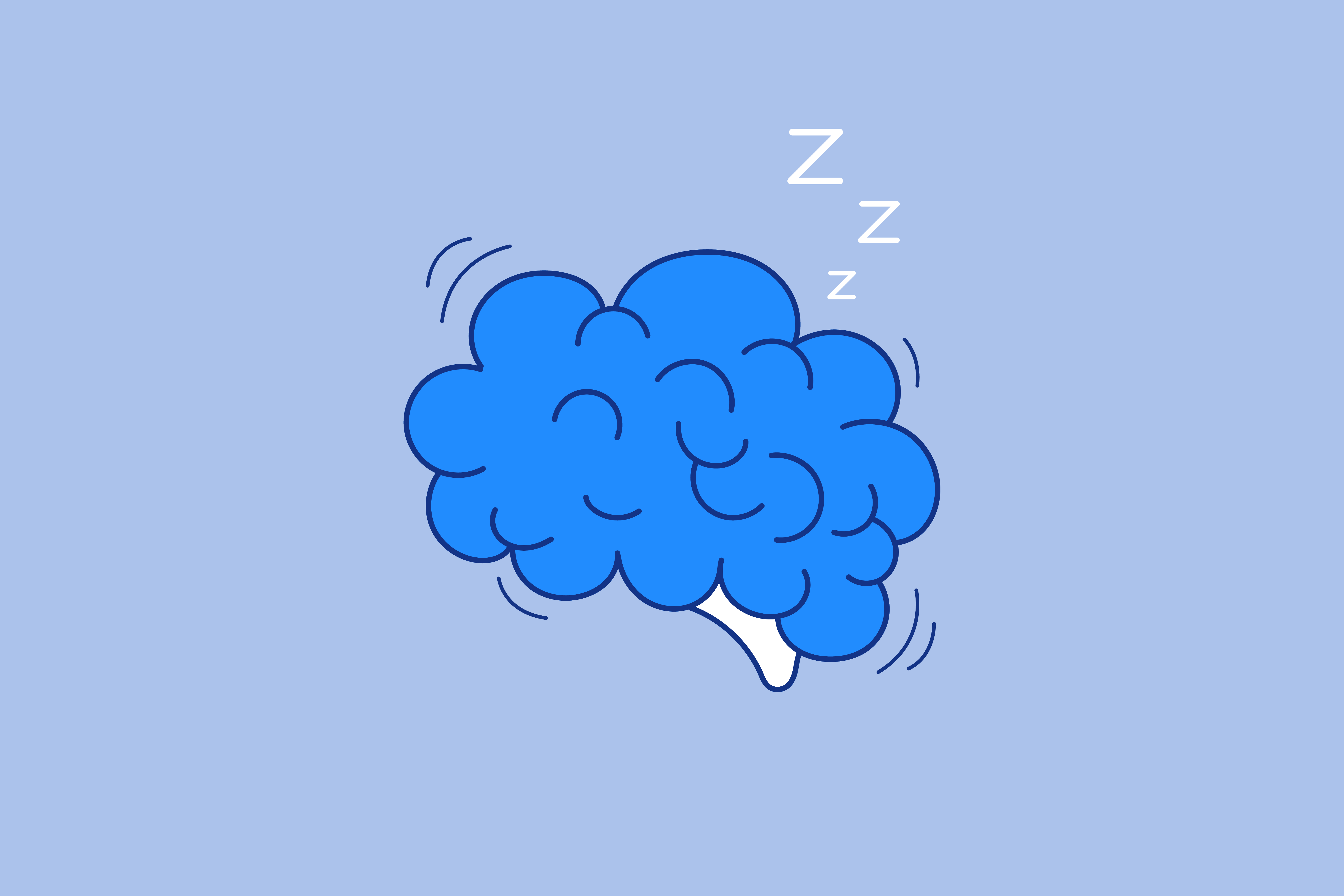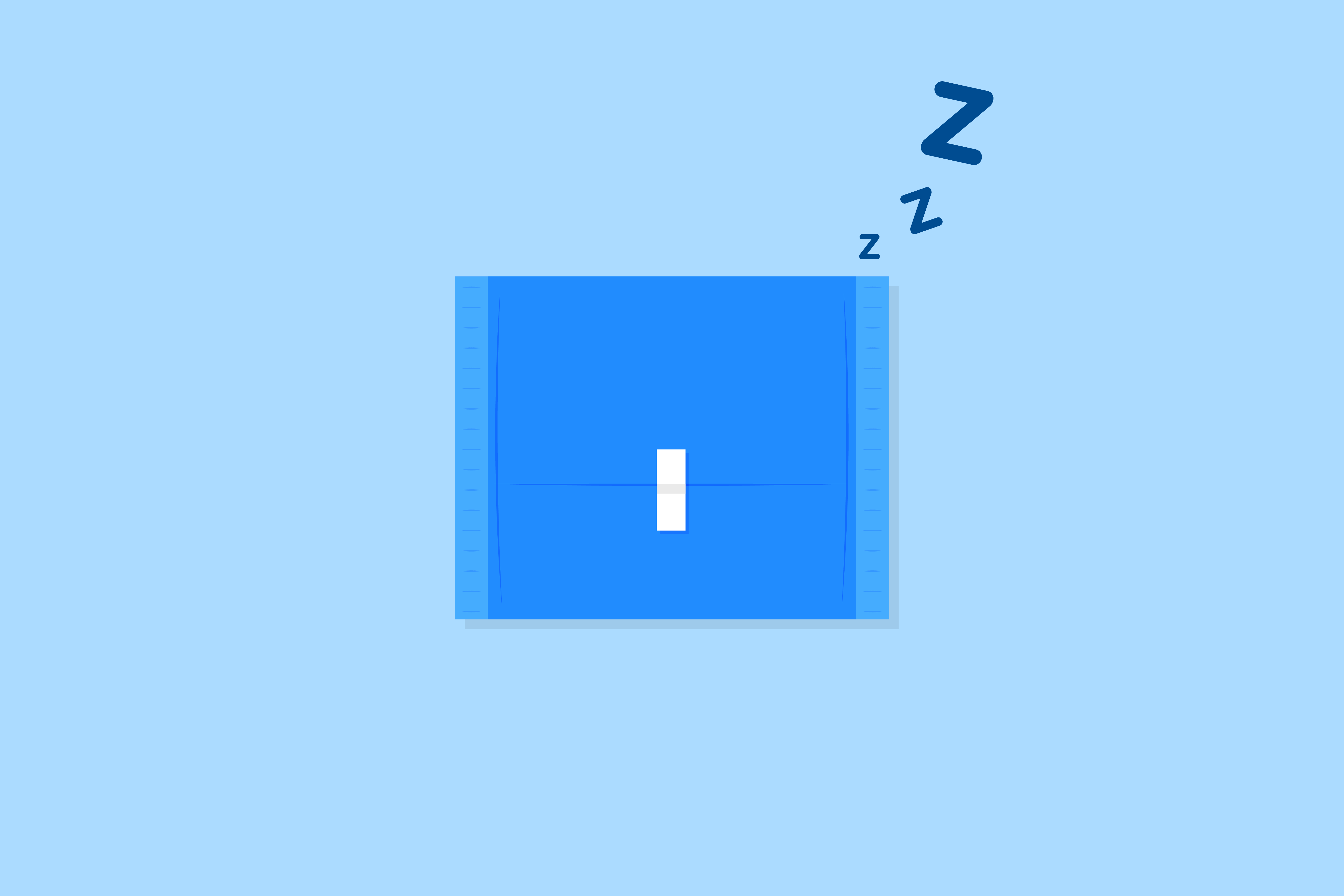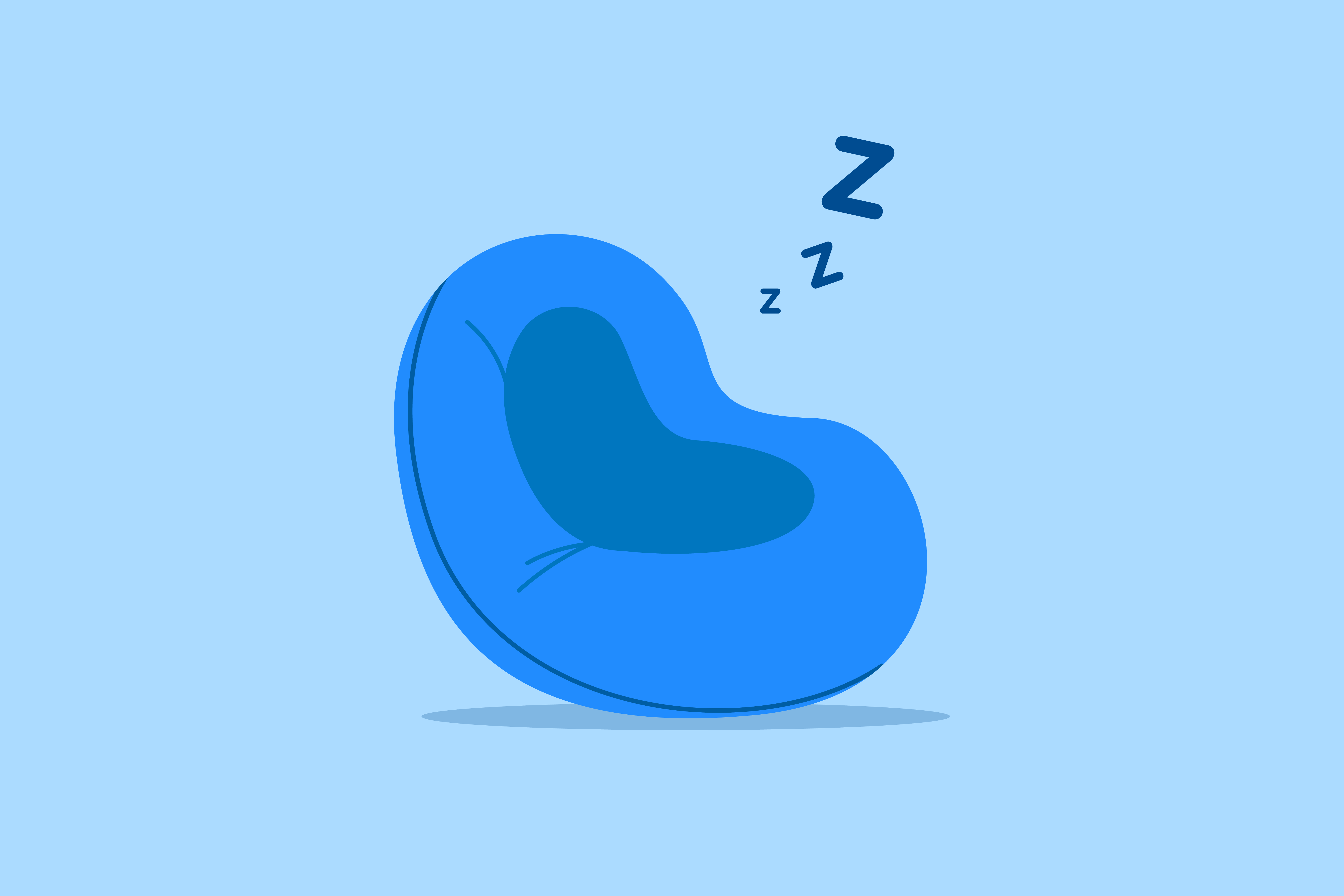Key Takeaways
- Epilepsy and Sleep Relationship: Epilepsy is a neurological disorder characterized by unprovoked seizures resulting from abnormal electrical activity in the brain. The connection between epilepsy and sleep is intricate, impacting the quality of life for individuals with the condition.
- Impact on Sleep Quality: Epileptic activity can disrupt sleep architecture, causing fragmented and insufficient sleep. Nocturnal seizures, triggered by various factors including sleep deprivation, sleep disorders, and medication fluctuations, can lead to daytime drowsiness and affect overall health.
- Sleep Deprivation and Seizures: Sleep deprivation can exacerbate epilepsy, increasing the frequency and severity of seizures. The altered brain activity due to lack of sleep makes the brain more susceptible to erratic electrical discharges, which trigger seizures.
Epilepsy is a neurological disorder with spontaneous recurrence of unprovoked seizures as the main symptom. For those living with epilepsy, the impact goes beyond the physical symptoms, affecting cognitive function, emotions, and overall quality of life.
While the seizures themselves are the hallmark of the condition, there’s another critical factor that often flies under the radar but is equally significant: sleep.
The relationship between epilepsy and sleep is enigmatic and a multifaceted one, with sleep both influencing seizures and being disrupted by them. This has profound implications on the quality of life of affected people.
Learning about epilepsy can help you understand its impact on sleep and how to manage them. In this exploration, we delve into the complex interplay between epilepsy and sleep.
We investigate how the quality of sleep can impact the occurrence of seizures, and conversely, how seizures can disrupt the sleep patterns of those affected by the condition.
Epilepsy & the Human Brain
Epilepsy is characterized by unprovoked seizures, which are the result of sudden, excessive electrical discharge in a group of brain cells. It is the fourth most common Verified Source National Library of Medicine (NIH) World’s largest medical library, making biomedical data and information more accessible. View source neurological disorder, Verified Source National Library of Medicine (NIH) World’s largest medical library, making biomedical data and information more accessible. View source which has affected around 1 in 26 Americans.
These electrical discharges can happen in different parts of the brain leading to various types of seizures. Verified Source National Library of Medicine (NIH) World’s largest medical library, making biomedical data and information more accessible. View source These electrical discharges travel throughout the body via neurotransmitters.
Studies have found that, during a seizure, many neurons Verified Source National Library of Medicine (NIH) World’s largest medical library, making biomedical data and information more accessible. View source send signals simultaneously, much faster than normal. Due to these impulses, the person suffers from involuntary movements, sensations, emotions, and behaviors.
How Does Epilepsy Impacts Sleep?
Sleep is a multifaceted process governed by the brain. During sleep, the brain cycles between REM (Rapid Eye Movement) sleep and the non-REM sleep stages.
Epilepsy and sleep Verified Source National Library of Medicine (NIH) World’s largest medical library, making biomedical data and information more accessible. View source are bidirectional — sleep can influence the occurrence and pattern of seizures, while epileptic activity can disrupt Verified Source National Library of Medicine (NIH) World’s largest medical library, making biomedical data and information more accessible. View source normal sleep architecture.
Studies in Epilepsy Current Verified Source National Library of Medicine (NIH) World’s largest medical library, making biomedical data and information more accessible. View source have found that seizures frequently occur during non-REM sleep, and frontal lobe seizures are most likely to occur.Epileptic activity during sleep can cause disruptions and fragmentation, leading to insufficient, broken sleep.
A research article Verified Source National Library of Medicine (NIH) World’s largest medical library, making biomedical data and information more accessible. View source from Neuropsychiatric Disease and Treatment has mentioned that epilepsy patients have significantly lower efficiency of sleep, have more N2 non-rapid eye movement sleep, and have less rapid eye movement (REM) sleep.
Thus, epileptic patients are prone to disrupted sleep, which also further affects their symptoms negatively. Drowsiness is a common consequence for patients who experience such sleep disruptions, and this daytime drowsiness can increase the risk of accident and injury.
Epileptic Seizures While Sleeping
Epileptic seizures during sleep or nocturnal frontal lobe epilepsy seizures can intervene with the body’s natural rest cycle. Verified Source National Library of Medicine (NIH) World’s largest medical library, making biomedical data and information more accessible. View source Though these seizures predominantly occur during the non-REM stage, the exact triggers can vary.
However, the common factors of nocturnal seizures Verified Source Johns Hopkins Medicine University focused on medical research that produces thoroughly reviewed health articles. View source include sleep deprivation, certain sleep disorders like obstructive sleep apnea, and fluctuations in medication levels during nighttime.
Studies have found Verified Source National Library of Medicine (NIH) World’s largest medical library, making biomedical data and information more accessible. View source that around 20% of people with epilepsy only have nighttime seizures, while 40% experience seizures while awake, and in 35% of people, seizures occur regardless of the state.These seizures come with profound implications. They can disrupt the sleep cycle, cause an increase in daytime drowsiness, and elevate the risk of complications, including SUDEO Verified Source National Library of Medicine (NIH) World’s largest medical library, making biomedical data and information more accessible. View source (Sudden Unexpected Death in Epilepsy).
However, patients with fully controlled seizures can still have disrupted sleep due to coinciding sleep disorders or seizure medications.
How Sleep Deprivation Affects Epilepsy
Sleep plays a pivotal role in the overall health of an individual. However, epilepsy makes it hard to get enough quality sleep.
Lack of adequate rest or sleep deprivation can affect Verified Source National Library of Medicine (NIH) World’s largest medical library, making biomedical data and information more accessible. View source the frequency, severity, and nature of epileptic seizures. Sleep deprivation Verified Source National Library of Medicine (NIH) World’s largest medical library, making biomedical data and information more accessible. View source can act as a potent trigger for seizures in many people.
What happens when the brain is deprived of rest? It undergoes changes in its electrical activity and neurotransmitter balance. This altered state caused by sleep deprivation can make the brain more susceptible to erratic electrical discharge, which is the starting point of epileptic seizures.
The lack of sleep also becomes the root cause of stress, which exacerbates seizures and symptoms of epilepsy. Stress can also worsen sleep, creating a vicious cycle.
Epilepsy & Sleep Disorders
Inefficient sleep can negatively affect normal individuals. In patients with epilepsy, sleep disorders are commonly diagnosed. Several sleep disorders are linked to epilepsy, such as the following.
Nocturnal Seizures
Epilepsy can cause sleep disturbances due to seizures that occur during sleep. These frequent seizures can fragment the sleep cycle and cause frequent waking-ups. Even without seizures, abnormal electrical activity in the brain can disrupt sleep stages.
Sleep Apnea
This condition is associated with periodic interruptions in breathing sleep, which can also trigger seizures. Factors like brief awakening and fluctuations in oxygen levels can provoke seizures, which is why sleep apnea is prevalent among epileptic patients.
Restless Leg Syndrome (RSL)
In epileptic patients, restless leg syndrome has been observed with increased frequency. In normal individuals, RSL can lead to sleep deprivation. In patients with epilepsy, the intense electrical activity and the strong urge to move their legs can prevent restful sleep.
Insomnia
Insomnia is a common sleep disorder that involves difficulty falling asleep, staying asleep, or waking up too early. In individuals with epilepsy, insomnia can be a side effect of medications or drugs or a result of anxiety about having seizures. Insomnia can lead to chronic sleep deprivation, which can increase the risk of seizures.
Diagnosing Epilepsy for Improved Sleep
An epilepsy diagnosis involves a comprehensive evaluation by medical professionals, including neurologists and epileptologists. The diagnostic process typically includes the following steps.
Medical History and Clinical Evaluation: The initial step involves gathering a detailed medical history from the patient and their family. The medical team will ask about the frequency, duration, and characteristics of the seizures. Any potential triggers or patterns associated with the seizures will also be explored.
A thorough physical examination and neurological assessment are conducted to identify any neurological abnormalities.
Electroencephalogram (EEG): An EEG Verified Source National Library of Medicine (NIH) World’s largest medical library, making biomedical data and information more accessible. View source is a non-invasive test that records the electrical activity of the brain using electrodes placed on the scalp. It helps in detecting abnormal brain activity that may indicate the presence of epilepsy.
Sometimes, a prolonged EEG monitoring session, called Verified Source National Library of Medicine (NIH) World’s largest medical library, making biomedical data and information more accessible. View source video-EEG monitoring, is conducted to capture and observe seizure activity.
Imaging Studies: Neuroimaging techniques such as magnetic resonance imaging (MRI) and computerized tomography (CT) scans are used to visualize the brain’s structure. These scans can help identify structural abnormalities, brain injuries, tumors, or other conditions that might be causing the seizures.
Laboratory Tests: Blood tests may be conducted to rule out other medical conditions that could be causing seizures, such as metabolic or genetic disorders.
(See also Does Lack of Sleep Affect My Blood Test Results?)
Neuropsychological Evaluation: In some cases, a neuropsychological evaluation may be performed to assess cognitive and behavioral functions. This evaluation can help understand the impact of epilepsy on cognitive abilities, memory, language, and other brain functions.
Seizure Diary: Keeping a detailed record Verified Source National Library of Medicine (NIH) World’s largest medical library, making biomedical data and information more accessible. View source of seizure episodes, including their timing, duration, and associated symptoms, can provide valuable information for the diagnosis and management of epilepsy.
Provocative Testing: In certain cases, healthcare professionals might use specific triggers or challenges to provoke seizures during monitored conditions. This can aid in understanding the seizure type and location within the brain.
Genetic Testing: Genetic testing may be considered, especially if there is a family history of epilepsy or if the seizures have specific characteristics that suggest a genetic component.
Functional Imaging: Techniques such as positron emission tomography (PET) Verified Source National Library of Medicine (NIH) World’s largest medical library, making biomedical data and information more accessible. View source and single-photon emission computed tomography (SPECT) can provide information about brain function and blood flow patterns, helping to locate areas of abnormal brain activity.
Clinical Diagnosis: Based on the results of the medical history, clinical evaluation, EEG, neuroimaging, and other tests, the medical team will make a clinical diagnosis of epilepsy if the criteria for recurrent, unprovoked seizures are met.
Treatments and Interventions
Treating epilepsy in the context of sleep disorders requires a unique approach. Addressing both conditions simultaneously is crucial to ensure the overall well-being of the patient.
Here are some treatment options.
Antiepileptic Drugs (AEDs)
These drugs are most commonly used in the treatment of epilepsy. The choice of AED will depend on the type and frequency of the seizures, the patient’s age, associated health conditions, and potential drug interactions.
Some AEDs Verified Source National Library of Medicine (NIH) World’s largest medical library, making biomedical data and information more accessible. View source can have sleep-related side effects, which require healthcare professionals to monitor and adjust dosage accordingly.
Vagus Nerve Stimulation (VNS)
This treatment method Verified Source National Library of Medicine (NIH) World’s largest medical library, making biomedical data and information more accessible. View source is being used for people who don’t respond to AEDs. This method involves implanting a device under the skin on the chest which sends electrical impulses to the brain through the vagus nerve. Studies have found this method as one of the most effective ones, as approximately 50% of patients Verified Source National Library of Medicine (NIH) World’s largest medical library, making biomedical data and information more accessible. View source experience at least 50% reduced seizure frequency.
Responsive Neurostimulation (RNS)
This treatment method involves Verified Source National Library of Medicine (NIH) World’s largest medical library, making biomedical data and information more accessible. View source the implantation of a device within the skull connected to electrodes placed in the area of the brain where seizures start. This device detects any abnormal electrical activity that starts in the brain and sends impulses to normalize it.
Dietary Therapies
A diet low in carbohydrates and high in fat, like a ketogenic diet, has been Verified Source National Library of Medicine (NIH) World’s largest medical library, making biomedical data and information more accessible. View source found effective Verified Source National Library of Medicine (NIH) World’s largest medical library, making biomedical data and information more accessible. View source in treating epilepsy, especially in children. The key is low glycemic index foods containing a diet that keeps sugar spikes to a minimum.
Aside from these treatment options, your healthcare professional might suggest you undergo surgery Verified Source National Library of Medicine (NIH) World’s largest medical library, making biomedical data and information more accessible. View source depending on the intensity & frequency of seizures.
Surgical options can also help with related conditions that affect sleep, such as surgery for sleep apnea.
One example is Verified Source National Library of Medicine (NIH) World’s largest medical library, making biomedical data and information more accessible. View source that removing soft palate tissue has been found to decrease OSA symptoms and seizures. The effectiveness of each treatment depends on the individual case and severity.Sleeping Safely with Epilepsy
Along with the increased chances of sleep disorders, there’s also the fact that nocturnal seizures not only interrupt sleep but also pose a hazard to your safety if precautions are not taken.
Patients with epilepsy need to not only make sure their bedroom is optimized for sleep and provides the needed cool, dark, and quiet for a good night’s sleep. They also need to make sure that the consequences of a seizure happening as they sleep are minimized as much as possible.
That means the following suggestions should be considered:
- If there’s a risk of falling out of bed during a seizure, choose a lower bed, install guard rails on the bed frame, or use a mattress on the floor.
- Similarly, remove sharp or hazardous objects from the area around the bed. Anything that can hurt a patient while they’re thrashing about in the throes of a seizure should be relocated, such as wall-mounted lights that are out of reach.
- Having too many pillows can obstruct movements during sleep, so individuals prone to nocturnal seizures should limit the number they’re sleeping with.
- Avoid stomach sleeping, as it can increase the risk of breathing difficulties during a seizure.
- Share a bedroom with a family, partner, or caregiver who can assist in case of a seizure. Alternatively, a service animal may be employed to alert someone in the home or to stay with the epilepsy patient and prevent injuries when a seizure occurs.
- Explore seizure alert or detection devices that can detect seizures and trigger alerts or calls for help, along with an electronic monitor in the room that can alert a caregiver to a seizure episode.
Managing Epilepsy Medication for Sleep
Overcoming epilepsy medication side effects that impact sleep can be challenging, but there are several strategies that individuals can consider with the guidance of their healthcare provider. Here are some possible ways to address sleep disruption caused by epilepsy medications.
Adjust Medication Dosing
Depending on the specific epilepsy medication you are taking, your healthcare provider might recommend adjusting the dosing schedule. For instance, some medications may cause more sleep disruption if taken close to bedtime, so adjusting the timing of medication administration could potentially minimize the impact on sleep.
Consider Alternative Medications
If your current epilepsy medication is causing significant sleep disruption, your healthcare provider might explore the possibility of switching to an alternative medication. Newer antiepileptic drugs (AEDs) are associated with fewer detrimental effects on sleep compared to older medications like benzodiazepines and barbiturates.
Discuss with your provider whether switching to a different AED is a viable option for you.
Supplemental Treatments
In some cases, supplemental treatments or medications can help mitigate the sleep-disrupting effects of epilepsy medications. For instance, if you are experiencing restlessness or insomnia due to medication side effects, your healthcare provider might recommend short-term use of sleep aids or sedatives to promote better sleep.
However, this approach should be discussed and monitored by a healthcare professional. For example, melatonin supplements, a common over-the-counter sleep aid, are not usually recommended for epilepsy patients due to potential drug interactions.
“Melatonin is synthesized from serotonin, so the potential for drug interactions may be a real issue here,” says Dr. Stuart Peirson.
More Tips to Improve Sleep
For epilepsy patients, achieving restful sleep is not just a matter of comfort. Sleep plays a crucial role in managing their condition. Here are some tips you can follow to achieve quality sleep hygiene with epilepsy.
Consistent Sleep Schedule
Follow a consistent sleep schedule by waking up and going to bed at the same time every day. It helps regulate the internal clock of your body and improves sleep quality.
Create a Restful Environment
Ensure that your bedroom environment is supportive for deep sleep. Keep your bedroom dark, quiet, and maintained at an optimal temperature and humidity.
Limit Screen Time
Epilepsy makes it hard to fall into a deep sleep, and the use of screens and technology before bed can exacerbate your symptoms. Light is also a potential trigger of photosensitive epilepsy.
Make a Wind-Down Routine
Follow a nighttime routine that can help your body wind down before bed and help you fall asleep. Turn off electronics, dim the lights, block out noise in the bedroom, and engage in relaxing activities to help you fall asleep with a calm mind.
“Reducing light exposure for ideally 3 hours before bedtime has been recommended to aid sleep,” says Professor Peirson.
Address Medicinal Side Effects
It is important to know if the antiepileptic medicine that you are using is working and if there are any unexpected side effects to the medicine. Verified Source National Library of Medicine (NIH) World’s largest medical library, making biomedical data and information more accessible. View source You should discuss the potential side effects Verified Source National Library of Medicine (NIH) World’s largest medical library, making biomedical data and information more accessible. View source of the medicine with your doctor and inform any unusual side effects you are experiencing.
Open Up about Stress and Anxiety
Epilepsy can be emotionally and physically draining and can transform a person’s life completely. Though it is normal to feel a variety of emotions, if you are feeling constantly anxious and stressed, you should consult with your doctor. Seeking support from a support group or talking to a counselor about your feelings can also help.
Don’t Neglect Your Sleep
As impaired sleep may be a risk factor for seizures, make sure that you discuss your sleep with medical professionals. Your sleep may be affected by your medicine as well as stress and anxiety. As epilepsy may also disrupt your sleep and increase the risk of seizures, this can become a vicious circle.
By keeping a check on your sleep hygiene and working with the best healthcare professionals, you can manage to get some hours of quality sleep.
FAQs
How do you know if you have sleep epilepsy?
Sleep epilepsy involves seizures that occur during sleep, especially in light sleep. The symptoms of sleep epilepsy include waking up confused, experiencing unusual movements at night, or finding new injuries upon waking up. If you have such symptoms, your healthcare professional should do an overnight EEG to monitor your brain activity during sleep.
What foods should epileptics avoid?
There are certain foods that cause hyperactivity in the brains of neurotypical human beings. The same foods might trigger seizures in epileptic patients, such as excessive caffeine, and high sugary foods.
Some patients might also be sensitive to artificial sweeteners, MSG, or gluten. What foods trigger seizures in your body requires you to be attentive toward their effects on your body.
Can epilepsy medication affect sleep?
Some epilepsy medications can cause drowsiness, while others might become a reason for insomnia. Antiepileptic medications can have different effects on your sleep cycle. It is better to discuss potential side effects with a doctor and keep track of your sleep patterns.
What medications make epilepsy worse?
Certain medications that are not designed to treat epilepsy specifically can lower the seizure threshold and exacerbate the symptoms of epilepsy. For example, some antidepressants, antipsychotics, and certain stimulant medications can worsen epilepsy. We suggest consulting with your doctor about the synergistic effects of these medicines.
What are the mental side effects of epilepsy?
Epilepsy can bring a spectrum of side effects on mental health, such as mood disorders like depression, anxiety, memory and cognitive challenges, and difficulty with concentration. Managing a chronic condition comes with an emotional toll and disorientation. Some antiepileptic drugs can also contribute to these mental health challenges.
Can I take melatonin supplements with epilepsy?
Melatonin can potentially interfere with seizure medications due to its interaction with enzymes in the liver that metabolize drugs. These enzymes are responsible for breaking down various substances, including certain epilepsy medications.
When melatonin is introduced, it might affect the efficiency of these enzymes, leading to altered levels of seizure medications in the bloodstream. This could result in reduced efficacy or increased side effects.
Conclusion
Epilepsy is a complex neurological disorder that affects various aspects of an individual’s life, including circadian rhythms for sleep cycle & patterns, dietary choices, and mental well-being.
If you are feeling unusual symptoms or side effects, pay attention to your routine and medicines. Consult with your healthcare professional for better outcomes.
By adapting to a healthy sleep routine and taking the medicines that suit you, you can improve your quality of life.
About the author
April Mayer is a sleep expert and writer with a degree in exercise physiology. She has dedicated her career to exploring the relationship between sleep and productivity. Her insightful articles, such as "The Surprising Way Your Mood Might Be Messing With Your Productivity" and "Wake Up to More Productive Mornings," have been featured in reputable publications like Forbes, Greatist, Real Homes, Thrillist, Tom's Guide, and Eat This, Not That. With a passion for helping others lead more productive lives through restful sleep, April offers valuable expertise on foods and vitamins for better sleep. As a trusted member of the Early Bird team since March 2020, she continues to provide informative and well-researched content.
View all posts





